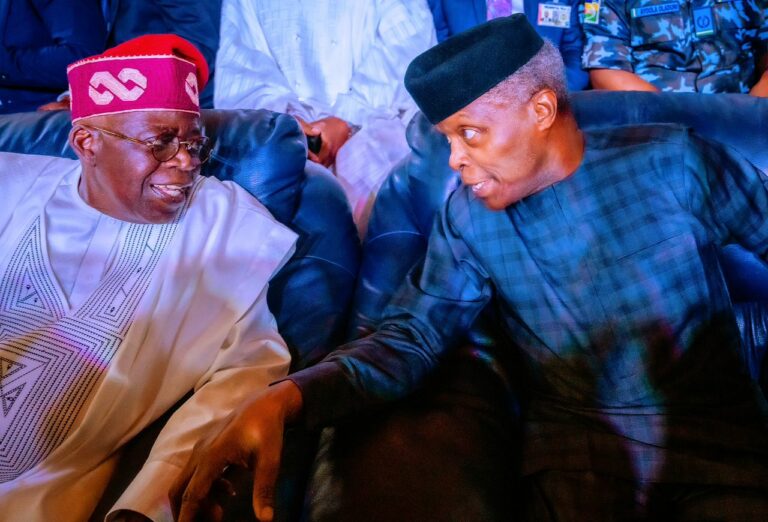Vice President Yemi Osinbajo has called for strong consensus among elites, urging the implementation of a policy framework that will promote social cohesion and unity in Nigeria.
Osinbajo made the call on Monday at the maiden ‘Policy Making and Good Governance Lecture Series’ organised by the National Institute for Policy Strategic Studies (NIPPS).
While speaking on issues regarding the settlers-indigenes dichotomy, the vice-president called for replacing the certificate of indigenes with a certificate of residence or birth, insisting that such a move would promote cohesion.
Osinbajo also called for a stronger and more equitable justice system that will treat all Nigerians equally, regardless of tribal, religious or ethnic affiliations.
The vice-president also called on the media to de-emphasise issues that promote ethnic and religious profiling and urged them to report news that would unite Nigerians.
The vice-president, in his lecture, ‘Creating a Homeland for All: A Nation Building in a Diverse Democracy’, decried the rising spate of divisiveness, which according to him, was responsible for Nigeria’s backwardness.
He maintained that “our diversity ought to be a blessing and not a curse,” adding that Nigeria has the potential to be a great nation.
Mr Osinbajo, who cited examples of Singapore, Tanzania and Rwanda as nations that effectively managed their diversities, said Nigeria could take a cue from them.
”Most heterogeneous nations have been able to manage and harness their diversities for the good of all and we can also do same in Nigeria. Our diversity in Nigeria should not be a burden. In fact, it is a blessing, and so we must develop the capacity to manage this diversity for the growth of our nation,” Mr Osinbajo stated.
He added, “So, elites must come together and agree to end the ethnic and religious profiling that we are currently facing in our dear nation. We must prioritise things that bind us together and deprioritise ones that set us apart.”
Mr Osinbajo believes that “the political class and the nation’s leadership can do more in developing policies, laws and the enforcing them toward addressing the weaponisation of ethnicity and religion in our dear nation.”
(NAN)




